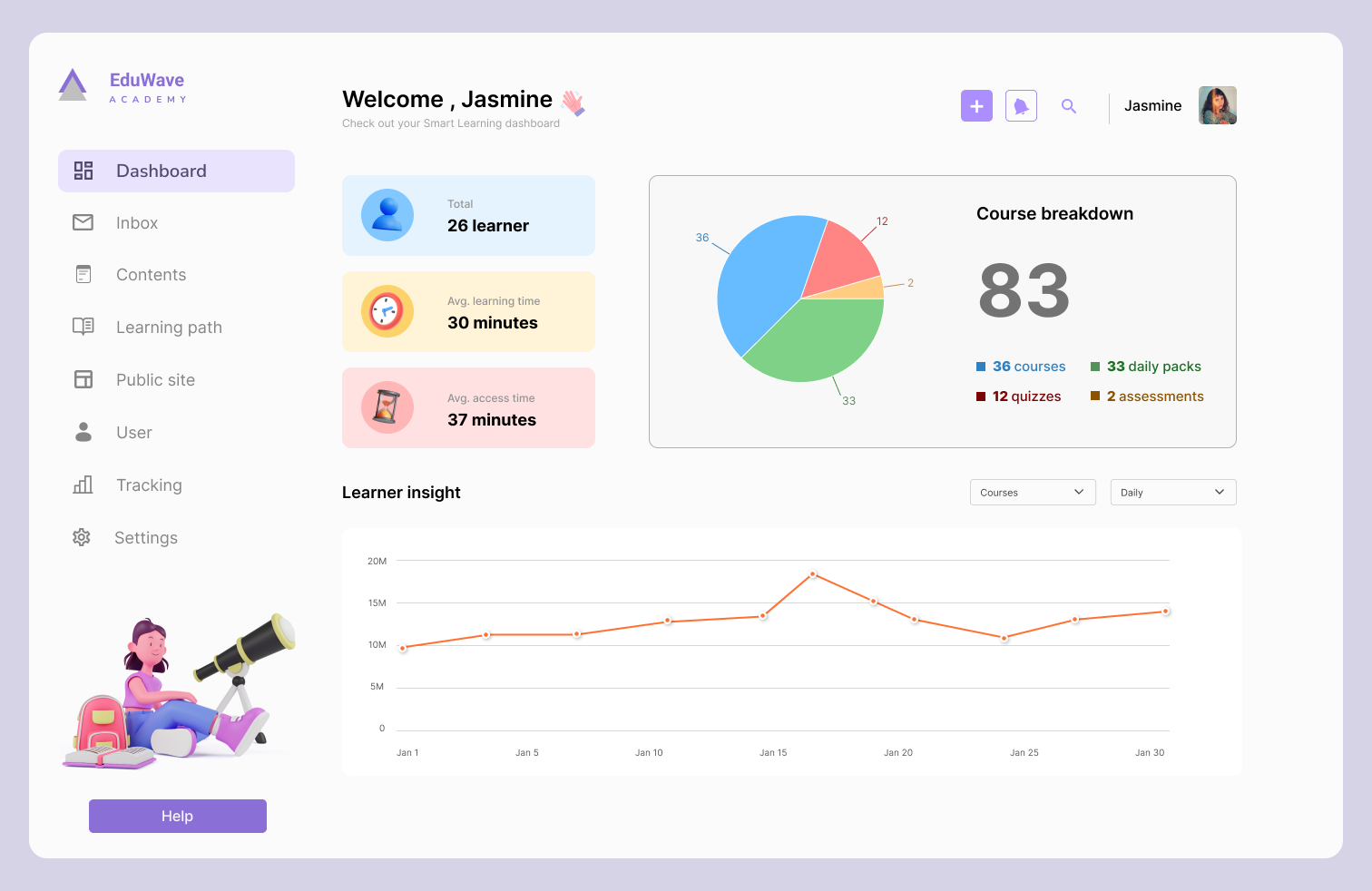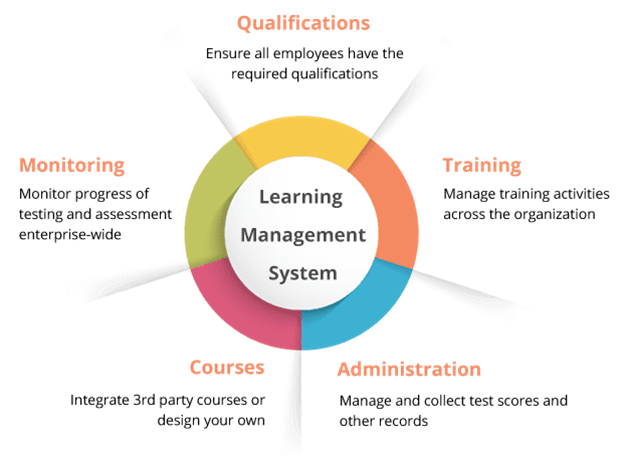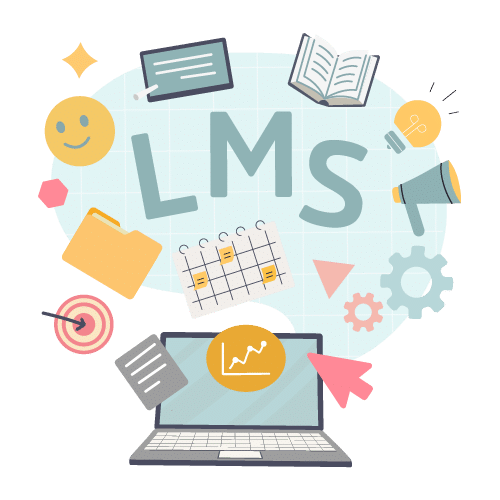Picking the Ideal Understanding Administration System for Your Organization
Choosing the optimal Understanding Administration System (LMS) for your organization is a multifaceted choice that requires mindful factor to consider of different elements. From defining specific discovering objectives that reverberate with your calculated vision to examining user experience, each aspect plays a pivotal role in the total efficiency of the system. In addition, comprehending combination capacities and guaranteeing scalability for future demands can not be ignored. As organizations pursue efficiency and development, the choice of an LMS comes to be increasingly considerable. What are the important considerations that can affect your decision-making procedure?
Define Your Discovering Purposes
Defining clear discovering goals is essential for the successful application of a Learning Management System (LMS) These purposes act as a roadmap, guiding the advancement of web content, analyses, and general educational strategies within the LMS. By establishing particular, quantifiable, attainable, appropriate, and time-bound (WISE) objectives, companies can ensure that the knowing experiences are aligned with their tactical goals and learner requirements.
Effective knowing goals ought to encapsulate what students are expected to know or be able to do upon conclusion of a training course or training program. This quality not just aids in material development however likewise facilitates the assessment of learner progression and the total performance of the LMS. LMS Singapore. Furthermore, distinct objectives enable stakeholders to analyze whether the selected LMS functions and capabilities straighten with their instructional objectives.
Assess Customer Experience
Once discovering objectives have been established, assessing individual experience comes to be a crucial following action in choosing an ideal Learning Administration System (LMS) Customer experience incorporates the total contentment and ease with which learners interact with the system. A properly designed LMS must assist in user-friendly navigation, making sure that customers can locate training courses, materials, and support easily.
To analyze customer experience, take into consideration carrying out functionality testing with a depictive sample of end-users. Secret aspects to evaluate consist of the LMS's interface design, accessibility features, mobile compatibility, and the quality of directions offered.
Furthermore, assess the availability of assistance sources, such as tutorials and help centers, which can boost the individual experience. The responsiveness of customer assistance is likewise crucial; prompt assistance can dramatically reduce irritations that customers may encounter. Inevitably, selecting an LMS that focuses on individual experience not just enriches the learning procedure yet additionally fosters greater interaction and fulfillment among learners.

Evaluate Combination Capacities
Recognizing the value of seamless functionality, examining assimilation abilities is crucial when selecting an Understanding Monitoring System (LMS) An efficient LMS must promote interoperability with existing systems, such as Human Source Management Solution (HRMS), Client Relationship Monitoring (CRM) systems, and other academic devices. This combination improves information circulation, reduces management concerns, and ensures a natural knowing atmosphere.
When examining an LMS, take into consideration the kinds of integrations supplied. Search For Application Shows User Interfaces (APIs), Single Sign-On (SSO) capacities, and pre-built connectors that improve integration processes. In addition, validate the LMS's capability to integrate with third-party tools, such as content libraries or evaluation platforms, which can substantially enrich the knowing experience.

Consider Scalability and Versatility
As companies progress, the capability of a Discovering Monitoring System (LMS) to range and adapt ends up being progressively essential. A scalable LMS can fit development in user numbers, training course offerings, and content without endangering performance or customer experience. As companies expand, whether via enhanced personnel, brand-new locations, or diversified training needs, the LMS should flawlessly grow alongside Learning Management System Singapore these changes.
Flexibility is equally essential; an efficient LMS needs to sustain various discovering modalities, such as online, blended, and mobile understanding. This adaptability enables companies to react promptly to emerging fads in training and advancement, guaranteeing that they can supply interesting and relevant learning experiences - Singapore LMS. Additionally, the system must offer personalized features, enabling companies to customize the LMS to their specific demands and branding
In addition, an adaptable LMS needs to incorporate quickly with existing systems and tools, assisting in a natural understanding ecological community. Hence, when selecting an LMS, it is essential to analyze not only its current capabilities yet likewise its potential to adjust and expand in alignment with the company's calculated goals and developing discovering requirements. This foresight can dramatically boost the long-term viability of the picked LMS.
Testimonial Costs and Budgeting
When assessing a Learning Administration System (LMS), assessing expenses and budgeting is crucial to guarantee that the investment lines up with the company's economic capacities and calculated purposes. Organizations needs to begin by determining the total expense of possession, which consists of licensing costs, implementation prices, upkeep, and any type of added expenditures such as training and technological assistance.
It is critical to compare different LMS options, as prices designs can vary significantly among vendors. Some systems might offer a subscription-based design, while others might bill a single cost. Organizations ought to likewise think about the scalability of the LMS; as they expand, the cost structure may alter, impacting lasting budgeting.

Final Thought
Selecting a suitable Discovering Management System (LMS) is crucial for attaining organizational learning goals. A comprehensive analysis of user experience, combination capacities, scalability, and financial factors to consider makes sure that the selected LMS straightens with strategic objectives and learner needs. By methodically addressing these variables, companies can enhance finding out outcomes, facilitate smooth operations, and assistance future development. Ultimately, the appropriate LMS acts as an essential device in cultivating a reliable learning setting and driving business success.
Picking the ideal Discovering Monitoring System (LMS) for your company is a diverse decision that requires cautious consideration of different aspects.Specifying clear learning purposes is crucial for the successful application of an Understanding Management System (LMS)Once learning objectives have actually been established, evaluating user experience becomes an important next action in choosing a proper Knowing Administration System (LMS)As organizations progress, the capacity of a Discovering Monitoring System (LMS) to range and adjust comes to be progressively essential.Picking a proper Discovering Management System (LMS) is important for accomplishing business discovering objectives.